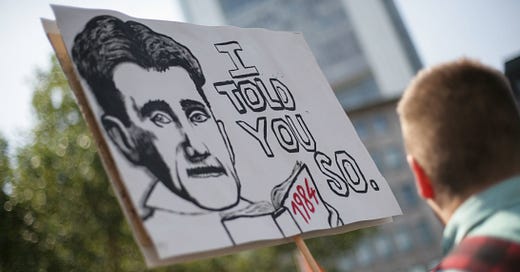It is not without justification that Animal Farm (1945) and Nineteen Eighty-Four (1949) have become the keystones of George Orwell’s legacy. Personally, I’ve always favoured his essays, more often quoted than read in full. I recently wrote an article about his essays for the Washington Post, focusing on their relevance to today’s febrile political clima…
Keep reading with a 7-day free trial
Subscribe to Andrew Doyle to keep reading this post and get 7 days of free access to the full post archives.




